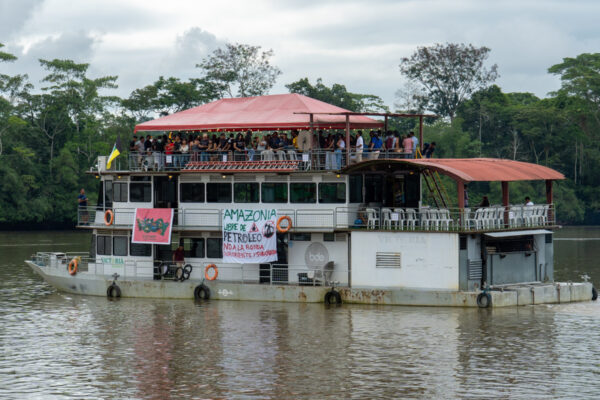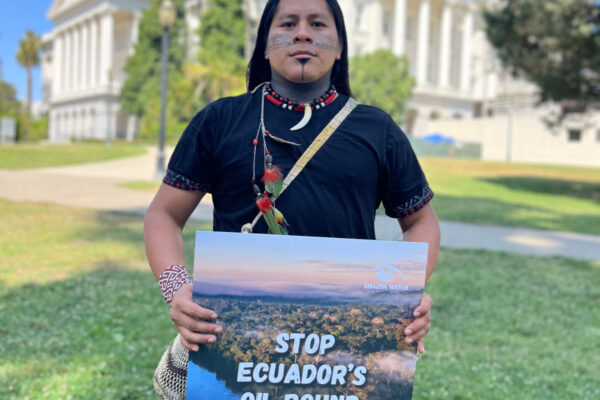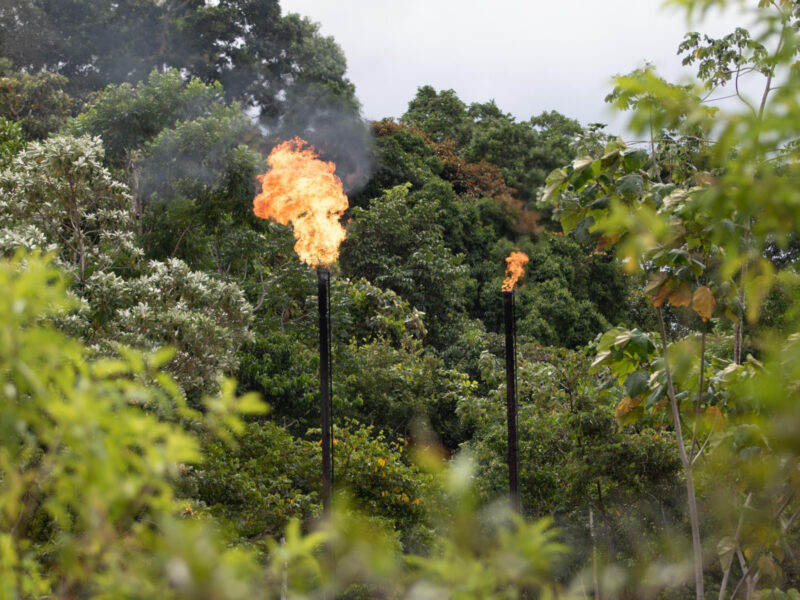Organized crime now dominates 70% of Amazonian municipalities across Bolivia, Brazil, Colombia, Ecuador, Peru, and Venezuela. Networks of illicit economies – or “Amazon Crime” – have diversified and expanded the territorial control and political power of criminal gangs, posing existential threats to biodiversity, ecological integrity, and Indigenous rights across the Amazon, much like in other critical ecosystems worldwide.
For Indigenous communities, these expanding criminal economies mean more than environmental degradation. They are direct assaults on their lives, health, and sovereignty. Illegal activities such as logging, mining, and coca production for international markets contaminate rivers with mercury, destroy food sources, deteriorate health, and displace communities from their ancestral lands. These burgeoning criminal markets, coupled with weak or complicit state institutions, have led Indigenous leaders to warn that criminal groups are increasingly taking over local government structures and exerting territorial control.
This deepening crisis makes the Amazon one of the most dangerous places in the world for environmental defenders. Indigenous organizations often face these threats alone, without adequate support from governments or international institutions. As Indigenous Peoples themselves underscore, these violent criminal economies kill leaders, recruit their youth, and spread fear through their communities.
Against this backdrop, every April in New York City, the United Nations Permanent Forum on Indigenous Issues (UNPFII) convenes Indigenous Peoples from around the world to discuss the principal matters that affect them, bring forward proposals and demands for change, and formulate recommendations to international institutions and governments to advance Indigenous rights.
At this year’s 24th session, a delegation of Amazonian Indigenous leaders delivered a clear and urgent message: organized crime and illegal economies are devastating the Amazon and threatening the survival of Indigenous Peoples. This delegation represented a broader call by 34 Indigenous organizations, including CONAIE, APIB, AIDESEP, CRIC, and others. They called on the Forum to include strong recommendations urging the international community and governments to step up their efforts to support Indigenous territorial governance, protect human rights defenders, and ensure Indigenous Peoples are included in shaping policies to prevent and contain organized crime.
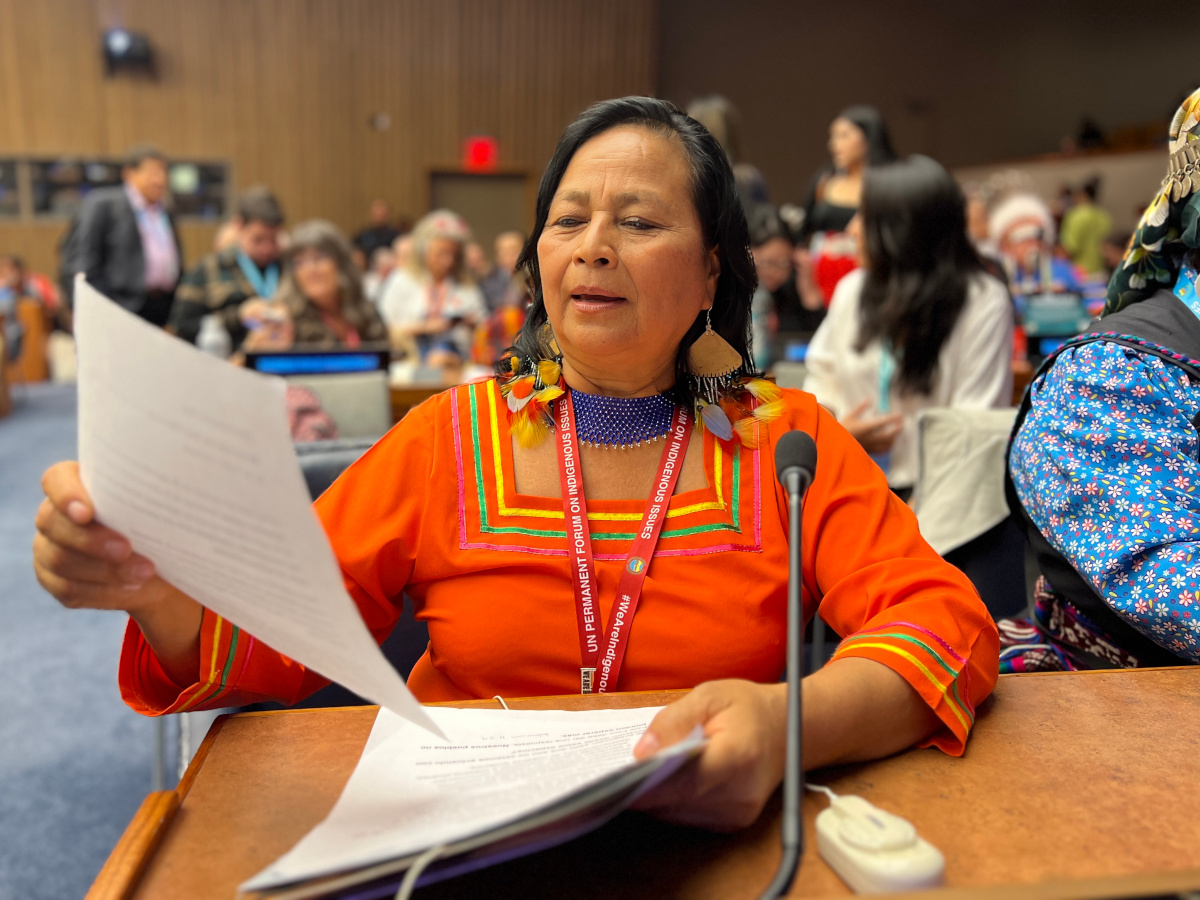
Several Indigenous leaders voiced these demands directly from the floor of the Forum. Nelly Shihuango of FOIN powerfully illustrated the stakes:
“These criminal economies contaminate our rivers with mercury, destroy our food sources, deteriorate our health and livelihoods, and spread fear in our communities: they kill leaders, recruit our youth, and displace us from our territories. How can we talk about implementing the UN Declaration on the Rights of Indigenous Peoples if we don’t acknowledge that we are being killed?”
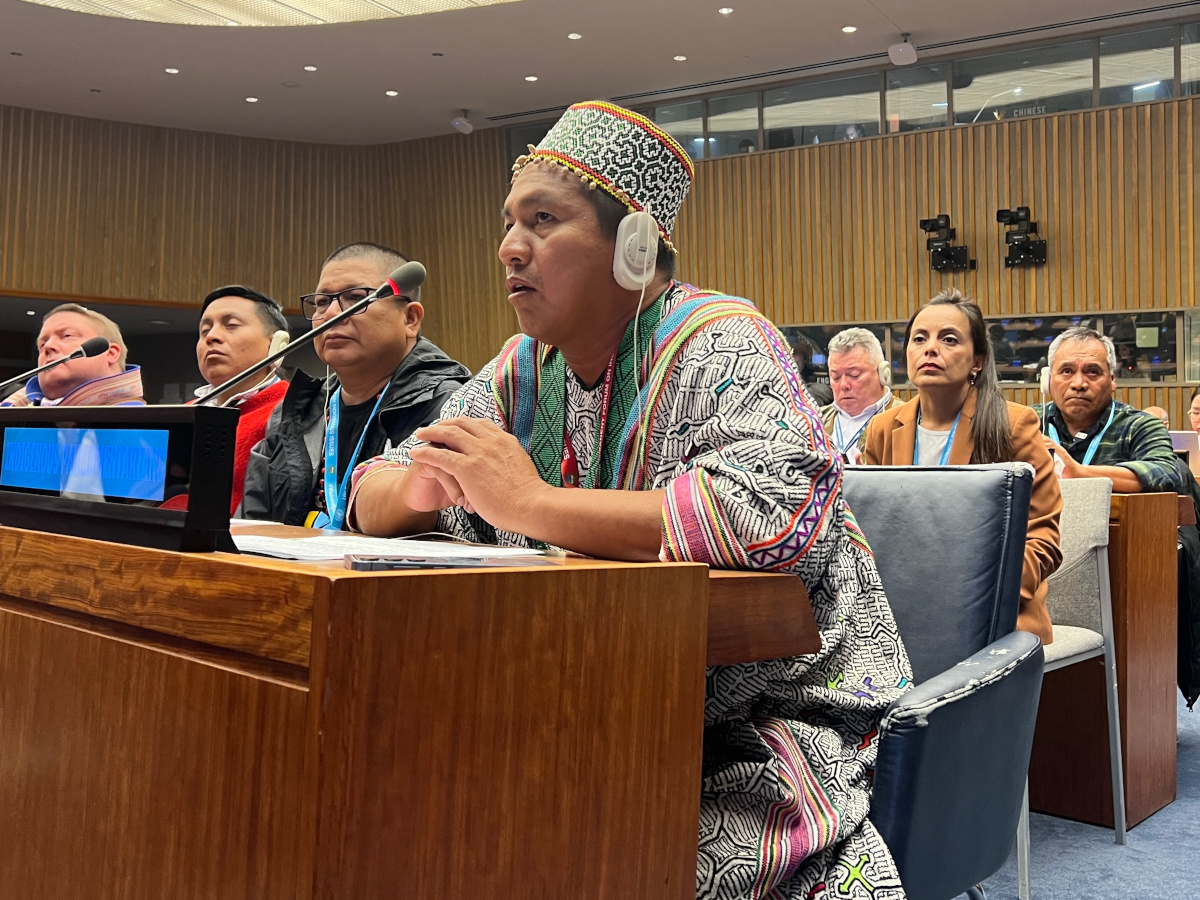
From the Peruvian Amazon, Shipibo-Konibo leader and Vice President of AIDESEP, Miguel Guimaraes, reinforced this call with a statement from the territories most affected:
“The Permanent Forum must formally recognize that organized crime and illegal economies such as drug trafficking and illegal mining are an existential threat to our peoples. We must be included in drafting the international protocol on environmental crimes, and protection mechanisms for Indigenous defenders must be created, along with funding for Indigenous-led economic alternatives. If these measures are not taken, ongoing military and police interventions in our territories will continue to put our lives at risk. Without dignified livelihoods, we cannot safeguard our culture or our territories.”
The Permanent Forum’s conclusions this year directly responded to these urgent appeals. Its final document, published earlier this month, presents a wide range of concerns, recommendations, and proposals related to the implementation of the United Nations Declaration on the Rights of Indigenous Peoples, with this session explicitly addressing the impacts and expansion of criminal economies.
In conclusion 87 of the document, the Forum urges governments and the United Nations Office on Drugs and Crime (UNODC) – the leading global institution on anti-crime policies – to integrate Indigenous Peoples meaningfully into the design and implementation of anti-crime and security strategies. It states:
“The United Nations Office on Drugs and Crime and States should ensure the meaningful inclusion of Indigenous Peoples when developing strategies to prevent and combat environmental and other crimes. This includes supporting capacity-building for the documentation and reporting of alleged crimes, Indigenous-led monitoring, and accountability and reparations for environmental harm on Indigenous lands and territories. Indigenous Peoples are encouraged to participate in and contribute to the Commission on Narcotic Drugs and the Commission on Crime Prevention and Criminal Justice.”
This recommendation is particularly relevant in the ongoing process to discuss a new Protocol Against Crimes that Affect the Environment, which must include the voices of Indigenous Peoples – as the principal stewards of global biodiversity and primary victims of the violence tied to these crimes.
The Forum’s conclusions also emphasize the urgent need for the international community and governments to:
- take necessary measures to ensure the rights, protection, and safety of Indigenous leaders and human rights defenders,
- end impunity and prosecute those who commit violence against Indigenous Peoples,
- acknowledge and protect Indigenous women and children from the disproportionate impacts of war and violence on their lives,
- ensure Indigenous participation in peace negotiations and peace-building processes,
- assess the impacts of mercury on the health, culture, and livelihoods of Indigenous Peoples under the Minamata Convention,
- and repair the damage from toxic metals on Indigenous lands and territories, including restoring sites and water sources, with special attention to the severe impact on the health of Indigenous women and children.
The next steps are clear. The Permanent Forum’s recommendations open the door for UNODC and other international institutions to create spaces for meaningful Indigenous participation in bodies such as the UN Convention Against Transnational Organized Crime (UNTOC), the UN Convention against Corruption (UNCAC), and the Commission on Crime Prevention and Criminal Justice (CCPCJ).
Most critically, the development of the Protocol Against Crimes that Affect the Environment must include the voices and leadership of Indigenous Peoples, who stand as both guardians of much of the planet’s biodiversity and primary targets of organized criminal violence.
Amazon Watch will continue to support Amazonian Indigenous organizations in making their voices heard in these critical spaces. Our work to amplify Indigenous leadership, expose systemic threats, and advocate for justice remains essential. As criminal networks and extractive industries intensify their assault on the Amazon, we are committed to ensuring that Indigenous Peoples not only have a seat at the table but lead the efforts to secure the future of their territories – and our planet.



